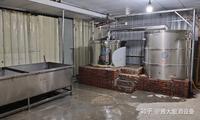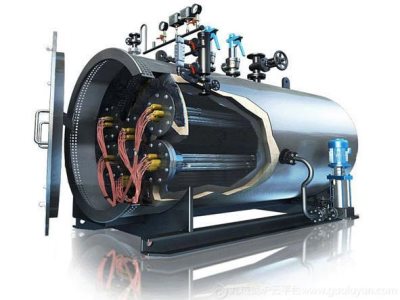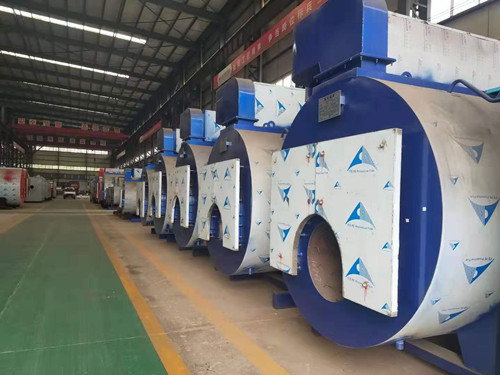外国网民评论:《美国工厂》
Nicholas SmithUpdated Aug 24, 2019I just watched American Factory on Netflix. This is a documentary about a massive Chin
Nicholas Smith
Updated Aug 24, 2019
I just watched American Factory on Netflix. This is a documentary about a massive Chinese corporation (the Fuyao Group) which in 2016 built a $1 billion car glass factory in Dayton, Ohio, and hired 5,000 Americans.
我刚在Netflix上看过《美国工厂》。这是一部记录片,讲述的是一家规模庞大的中国公司(福耀集团)2016年在俄亥俄州代顿市建造了一家价值10亿美元的汽车玻璃厂,并雇佣了5000名美国人的故事。
Since most of the Americans were new to glass, and all were new to Chinese organisational culture, each American was paired to a Chinese supervisor/mentor. The Chinese quickly realised that most of the Americans lacked the work ethic that was expected in China. In the words of one manager, “Most of our workers are here to make money, not make glass.”
由于大多数美国人对玻璃都不熟悉,对中国的组织文化也都不熟悉,所以每个美国人都有一个中国师傅。中国人很快意识到,大多数美国人缺乏中国人所期望的职业精神。用一位经理的话说,“我们大多数工人来这里是为了赚钱,而不是制造玻璃。”
In 2017, Fuyao invited the American floor managers to one of its factories in China so they could witness the productivity and ethos of its workers back home.
2017年,福耀邀请美国基层经理到福耀在中国的一家工厂参观,让他们见证家乡工人的生产力和风气。
At the Chinese plant, workers had 12-hour, not 8-hour, shifts. They spent those 12 hours working as rapidly and flawlessly as machines, with no apparent breaks. One worker ate some Twinkie rolls while he was working and called them his lunch. A Fuyao manager explained, “Here we believe you have to be worth your salary.” Workers had no weekends — just one or two, maximum three days off, per month. Their holidays were also a few days a year, and those of them whose families were in other towns were only able to see their families every six months or so. Workers who had to sort mountains of broken glass into recycling categories spent all day doing this by hand, without safety goggles or cut-resistant gloves. One man who worked in the furnace showed the burn scars on his arms.(I do not agree with or condone those working conditions, and believe Fuyao employees deserve better, but I am showing the Chinese cultural standard of “hard work.”)
在中国工厂,工人们轮班12小时,而不是8小时。他们花了12个小时像机器一样快速、完美地工作,没有明显的中断。一个工人在工作时吃了一些面包卷,并把它们称为他的午餐。福耀的一位经理解释道:“在这里,我们认为你得对得起你的工资。”工人们没有周末——每个月只有一两天,最多休息三天。他们一年中只有几天年假,他们中那些家庭在其他城镇的人只能每六个月左右见一次家人。工人们不得不把堆积如山的碎玻璃分类成可回收的类别,他们整天都是用手来做这件事,没有戴护目镜,也没有戴防割手套。一个在锅炉边工作的人手臂上有烧伤的疤痕。(我不同意或纵容这种工作条件,我相信福耀的员工应该得到更好的待遇,但我要在展示“努力工作”的中国文化标准。)
In the morning, workers had prep meetings and they were exactly like a roll call in the military. No joking around or idle chitchat. The supervisor chanted out company mottoes, and the workers repeated in enthusiastic unison. Each section of workers (there were 19 men in the section I saw), all dressed in Fuyao’s navy blue uniform, stood at attention, shoulder to shoulder, eyes up straight. Each worker turned his head to his side as he cried out his number, and then the 19th said, “19! 19 people are supposed to be here, and there are 19 people here!” Then the supervisor dismissed them, to begin their duties.
早上,工人们开预备会,他们就像军队里的点名一样。不允许开玩笑或闲聊。主管高呼公司的口号,工人们热情地齐声重复。每个工段(我看到的工段里有19个男人),都穿着福耀的海军蓝制服,站在那里目不转睛,肩并肩,目不转睛。每个工人一边喊着自己的号码一边把头转向一边,然后第19个工人说:“19!应到19个人,实到19个人!“然后主管解散了他们,开始他们的工作。
Beyond this, Fuyao dedicated considerable resources to keeping employee morale very high (without changing compensation or working conditions). The company has its own anthem and many “patriotic” songs, frequently sung at parties. For me it was so weird to hear a song about the virtues of lean manufacturing! And there were a lot of parties and events like any concert, full of lights, music and entertainment, to celebrate the factory accomplishing this or that milestone. Some employees worked as dance or singing groups. There were performances staffed by employees’ children. At one event, eight Fuyao employees brought their partners and had a mass wedding right there.
除此之外,福耀还投入了大量资源来保持员工的士气(不改变薪酬或工作条件)。该公司有自己的厂歌和许多“爱国”歌曲,经常在聚会上演唱。对我来说,听到一首关于精益制造优点的歌真是太奇怪了!有很多派对和活动,任何音乐会都充满灯光,音乐和娱乐,以庆祝工厂完成这个或那个里程碑。一些员工担任舞蹈或歌唱团体。有员工的孩子参加演出。在一次活动中,八名福耀员工带来了他们的伴侣,并在那里举行了一场集体婚礼。
When the American managers returned to Dayton, one of them had to calm down an angry employee loudly complaining that he had been waiting two weeks for three busted microwave ovens to be replaced, and that the large lunchroom was going to be converted into more production space.
当美国经理们回到代顿时,其中一位经理不得不让一位愤怒的员工冷静下来,他大声抱怨说,他已经等了两周,等着谁来把三台坏了的微波炉被换掉,而这间大餐厅将被改造成更大的生产车间。
Efforts to replicate Fuyao’s prep meetings and company events failed miserably at the Dayton plant. The American employees just rolled their eyes. Instead, they complained about their low wages (starting at $12.84/hr) and unsafe working conditions. Some of their concerns, like the high rate of workplace injuries, were legitimate. The company raised the starting wage by two dollars and managed to get its act together on the safety issue. However, the essential problem remained unresolved: Americans just weren’t used to the expectations of their Chinese supervisors, and found them unrealistic and often unbelievable. A factory with 5,000 workers had a turnover of 3,000 workers in two years.
在代顿工厂,复制福耀筹备会议和公司活动的努力惨遭失败。美国雇员翻着白眼,他们抱怨自己的工资低(起薪12.84美元/小时)、工作条件不安全。他们的一些担忧,如工伤率高,是合理的。这家公司把起薪提高了两美元,并设法在安全问题上采取行动。然而,根本问题仍未解决:美国人无法适应中国监管机构的期望,觉得他们定的目标不切实际,而且常常令人难以置信。两年内,一家5000名工人的工厂的营业额只达到3000人的程度。
Watching this documentary made me understand what Chinese people are used to in terms of hard work. Their bar is way above that of most people in the Western world. For a worker in China, it is normal to have to give almost all of their time, energy and freedom to their company. They’re not an army, but they do have the discipline, organisation, propaganda, focus, efficiency, and productivity of any US Marine infantry platoon.
看了这部纪录片,我明白了中国人在努力工作方面的传统。他们的抗压能力比西方世界大多数人都高。对于一个在中国工作的人来说,几乎把所有的时间、精力和自由都交给公司,这看起来是很正常的。他们不是军队,但他们有纪律,组织,宣传,重点,效率,有和任何美国海军陆战队步兵排一样的生产力。
The Chinese company is like a stern, demanding father. In China there is no culture of supervisors or managers giving positive reinforcement to their workers. When a Chinese supervisor yelled at an American worker in the Dayton plant, she cried; in China you’d just have to swallow your pride, keep a straight face and improve your game immediately.
这家中国公司就像一个严厉、苛刻的父亲。在中国,主管或管理者没有对员工进行积极激励的文化。当一名中国主管对代顿工厂的一名美国工人大喊大叫时,她哭了;在中国,你只能收起你的傲气,保持一张严肃的脸,立刻改进你的工作。
In China overtime is mandatory, whenever you’re asked. The Dayton factory’s Chinese supervisors were incredulous to discover that they couldn’t force overtime on anybody.
在中国,只要你被要求,加班都是强制性的。代顿工厂的中国主管们无语的发现他们不能强迫任何人加班。
Oh, and there are no unions in China. There’s no such thing as labour relations or collective bargaining. Fuyao struggled to prevent its American workers in Dayton from forming a union. In the end, it hired a “union avoidance consultancy” to convince most of its workers to vote against forming a union (and succeeded), while the workers who were the loudest in campaigning for a union were fired.
哦,而且中国没有工会。不存在劳资关系或集体谈判。福耀努力阻止在代顿的美国工人成立工会。最后,它聘请了一家“工会回避咨询公司”,说服大多数工人投票反对组建工会(并获得成功),而在争取工会的活动中呼声最高的工人则被解雇。
”At the end of the documentary the chairman of Fuyao said, “The point of living is to work.”
在纪录片的结尾,福耀董事长说:“生活的意义在于工作。
I realised that at 30, I have never worked a single day like a Chinese employee, even one much younger than me. If I had a factory job in China, if I didn’t radically change, I would be fired on my first day.
我意识到,30岁的时候,我从来没有像中国员工那样工作过一天,哪怕我年轻的时候。如果我在中国有一份工厂工作,如果我不彻底改变,我第一天就会被解雇。
I also realised that if the Fuyao factory I saw is typical of a Chinese operation, then there is simply no way that any Western company can outproduce or outperform a Chinese rival, unless it was 100% automated or something. American and Chinese workers are as different as night and day. The Chinese worker puts his company above himself and gives it so much for so little. We say we work hard, but in China hard work means something entirely different.
我还意识到,如果我看到的福耀工厂是典型的中国企业,那么任何西方企业都不可能生产出超过中国竞争对手的产品,除非它是100%自动化的或是别的什么。美国工人和中国工人的一天是不一样的。这位中国工人把公司凌驾于自己之上,只赚很少的钱就付出那么多。我们说我们努力工作,但在中国,努力工作意味着完全不同的东西。
This also helps us understand tiger parenting. No wonder Chinese factory workers, most of whom probably weren’t able to get into China’s horrifically competitive university system, make the education of their children a fanatical priority.
这也有助于我们理解中国严厉的教育方式。中国工厂工人,他们中的大多数可能无法考上竞争激烈的中国大学,所以把孩子的教育作为一个狂热的优先事项。
——————回复——————
Megan Cox
Sep 19, 2019 · 28 upvotes including Nicholas Smith
After living in China for 3 years and working with/in factories on behalf of my company and others, I returned to the US to open my own factory. When my employees didn’t immediately carry the same sense of duty and attention to work as the Chinese workers in the factories I just spent the past 3 years in, I have to admit that I felt a little lost. Where was their sense of pride in their work? Where was their work ethic?
It’s been a long, slow road, and we’ll never look like Fuyao (nor should we, really) but there is a happy medium between the current state of affairs in US manufacturing and the Chinese way of getting stuff done. We can’t force Chinese values and culture onto our staff, but I think we can meet in the middle somewhere to engage our employees and re-instill a sense of pride and duty to their work.
在中国生活了3年后,我代表我的公司和其他人在工厂工作了3年后,我回到美国开办了自己的工厂。当我的员工没有像我中国工人那样对工作有责任感和关注时,我不得不承认我感到有点失落。他们对工作的自豪感到哪里去了?他们的职业道德在哪里?这是一条漫长而缓慢的道路,我们永远不会看起来像福耀(我们也不应该看起来像福耀,真的),但在美国制造业的现状和中国的做事方式之间有一个折中的办法。我们不能把中国的价值观和文化强加给我们的员工,但我认为我们可以找到一个折中的办法,让我们的员工参与进来,并重新灌输他们对工作的自豪感和责任感。
Dale Coder
Aug 30, 2019 · 86 upvotes including Nicholas Smith
The Chinese had this same work ethic in the nineteenth century. When Americans realized that Chinese immigrants who worked like this were going to compete for their jobs, they simply banned Chinese immigrants. See the Chinese Exclusion Act of 1882. Perhaps the tariffs are a 21st century equivalent of that.
中国人在19世纪也有同样的职业道德。当美国人意识到像这样工作的中国移民将会抢走他们的工作时,他们干脆禁止了中国移民。看看1882年的排华法案。或许关税是21世纪的排除竞争的手段。
George Géal-Killy
Sep 19, 2019 · 7 upvotes
There is nothing to learn from China here for that's what the others were doing a century ago. And guess who tops the productivity rankings nowadays?
When the Chinese will shift to a productive society, you can be sure they would have changed their methods. And with the side effects of the one child policy, it might happen sooner than expected.
这里没有什么可以向中国学习的,因为一个世纪前其他国家就是这么做的。猜猜现在谁的生产率排名第一?当中国变成一个有生产力发达的社会时,你可以肯定他们会改变他们的方法。由于独生子女政策的副作用,它可能会比预期来得更早。
Thomas Brown
Sep 19, 2019 · 1 upvote
As wages rise, labor and manufacturing is outsourced to ASEAN and African nations, automation increases, and the middle class grows expect the 996 idea to end. (For those who don’t know, it’s the idea that you should work from 9am-9pm, 6 days a week.) There will be increasing pressure on the NPC to legislate and enforce shorter work days, safer working conditions, and generally humane treatment of workers.
People like Jack Ma can praise the 996 ideal and espouse nonsense like “working harder brings more rewards” but that is transparently wrong for the vast majority of laborers. You don’t get more rewards, just less time with your family. And more and more Chinese are realizing this, especially the young.
随着工资上涨,劳动力和制造业外包给东盟和非洲国家,自动化程度提高,中产阶级增长,预计996的工作方式将结束。(对于那些不知道996的人来说,996就是你从早上9点上班到晚上9点,一周工作6天。)人大将面临越来越大的压力,要求立法和实施更短的工作时间、更安全的工作条件,以及普遍的工人人道待遇。
MaYun赞扬996,公开支持“更努力的工作带来更多的福报”这样的无稽之谈,但这对绝大多数劳动者来说显然是错误的。你不会得到更多的奖励,但和家人在一起的时间变少了。越来越多的中国人意识到了这一点,尤其是年轻人。
Chris Mackay
Sep 22, 2019
“The Chinese worker puts his company above himself and gives it so much for so little. We say we work hard, but in China hard work means something entirely different.”
I think this is jumping to conclusions. We’re all human. It’s all about face really. I suppose you did not encounter the regular nap taking at the office or ‘pretending’ to do work whilst waiting for your team leader to go home.
中国工人把公司看得比自己重要,付出得多,得到的却少。我们说我们努力工作,但在中国,努力工作意味着完全不同的东西。”我认为这太草率下结论了。我们都是人类。一切都是为了面子。我想你没有遇到过在办公室打盹或者在等着你的组长回家的时候“假装”工作的情况。
Lance Crayon
Nov 20
Not every factory in China is like Fuyao. Perhaps a documentary about Foxconn would balance the scales? Furthermore, I would never trust a documentary produced by a politician.
不是所有的中国工厂都像福耀一样。也许一部关于富士康的纪录片能匹配这种印象?此外,我从不相信由政客制作的纪录片。
Kate Zir
Sep 20, 2019
I have to say that at least in nursing 12 hour shifts are nothing unusual in the US. And that’s just the official length and does not include off the clock time. And while theoretically you get a lunch break there frequently isn’t time to go to the bathroom, let alone take a break.
我不得不说,至少在护理工作方面,12小时轮班在美国并不罕见。这只是官方规定的长度,不包括下班时间。虽然理论上你有午休时间,但你经常没有时间去洗手间,更别说休息了。
Poppy Cotzee
Sep 19, 2019 · 2 upvotes
What I got from this is that the workers are exploited. Yes, it's good to have a work ethic, but don't the kids need their parents too? Help with homework, teacher-parent conference day, sudden high fever, visit to the dentist/doctor etc?
And as for the lack of safety, all that dedication and no compensation in return will mean nothing when a worker gets seriously injured and can never provide for their family again. Their companies view them as expandable and replacable.
我从中看到的是工人们被剥削了。是的,有职业道德很好,但是孩子们难道不需要他们的父母吗?辅导家庭作业、家长会、突然发高烧、看牙医/医生等等?至于缺乏安全,所有的奉献和没有回报的补偿将毫无意义,当一个工人严重受伤,再也不能养活他们的家人。他们的公司却认为他们是可替代的。
更多外网时政评论敬请关注公众号:【外网视角】




